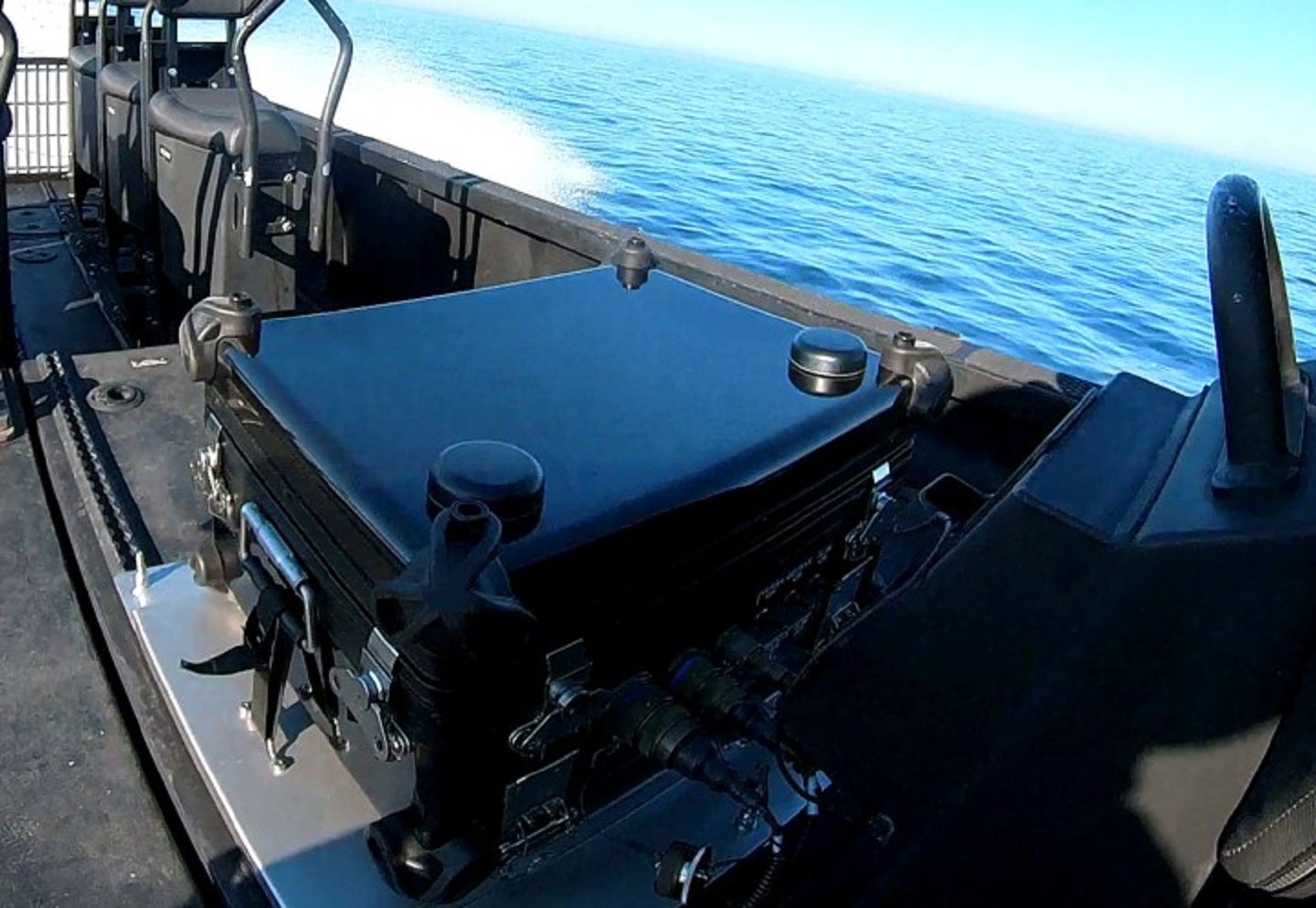
The French-based company, Safran Group, have announced on 28 March that it will deliver a new resilient position, navigation and timing (PNT) system for French Navy commandos to adapt to their semi-ridge boats for special operations.
The unique feature Safran have to offer in its PNT system is that it sustains military operations in the face of global navigation satellite system (GNSS) denial. The tactic of denying enemy forces the use of critical GNSS positioning has become a standard one in the military playbook.

Discover B2B Marketing That Performs
Combine business intelligence and editorial excellence to reach engaged professionals across 36 leading media platforms.
GNSS denial
GNSS denial – including jamming, spoofing or lack of signals – are methods widely used. Global Defence Technology has explored its disruptive interference in a feature, looking at its employment by Russian and Syrian forces, where this form of electronic warfare (EW) cuts sharply across borders.
Maritime battlespaces are no exception to the new form of disruptive interference. Safran Group’s new resilient PNT system – called the NAVKITE system – sustains GNSS capabilities in the face of this threat as Safran assert: “All onboard systems must be precisely geolocated and synchronised so they can provide consistent, reliable and time-stamped information under all conditions”.
NAVKITE capabilities
NAVKITE will be integrated in ECUME (Embarcation Commando à Usage Multiple Embarquable), a transportable, multirole, semi-rigid boat purpose-designed for commandos and other special forces.
Safran has developed a compact, hybrid navigation system to be used on ECUME, allowing special forces to operate in an increasingly complex and uncertain environment. The system’s capabilities depend on the coupling of a GEONYX M inertial navigation system with the VersaSync time/frequency server, both being Safran products. Together, they handle the transmission of trusted PNT data to ensure mission continuity.

US Tariffs are shifting - will you react or anticipate?
Don’t let policy changes catch you off guard. Stay proactive with real-time data and expert analysis.
By GlobalDataThe first sea trials of the system, performed out of the Lorient naval base in Brittany by FUSCOLAB and the Ponchardier commando unit, demonstrated NAVKITE’s performance under operational conditions. It was then deployed in February 2023 in the joint services exercise Hemex, projecting a major engagement, during phase two of exercise Orion, a large-scale operation for resilient, innovative and interoperable armed forces, focused on high-intensity conflicts.
It is said that the NAVKITE system “delivered very satisfactory performance”, according to the Safran release.
French investment in PNT
According to GlobalData, France’s expenditure on GNSS generally as the company expects a stagnant trend between 2022-2032, with the country registering a compound annual growth rate (CAGR) of -11.49%.
The amounts committed are quite low too, with spending fluctuating between $10,000 to $30,000 in the given period.
France is not an outlier either, as global investment in GNSS and its preservation is similarly stagnant, as it is expected to fluctuate between from $22,000 to $1.4m in the same period, registering a CAGR of -32.99%.
Despite this trajectory, Safran Group is confident that “NAVKITE stands out as a technological breakthrough in resilient PNT”. If this accurately testifies to the anti-denial capabilities of its system, then we can only expect investment in this technology to increase significantly in the coming years.





